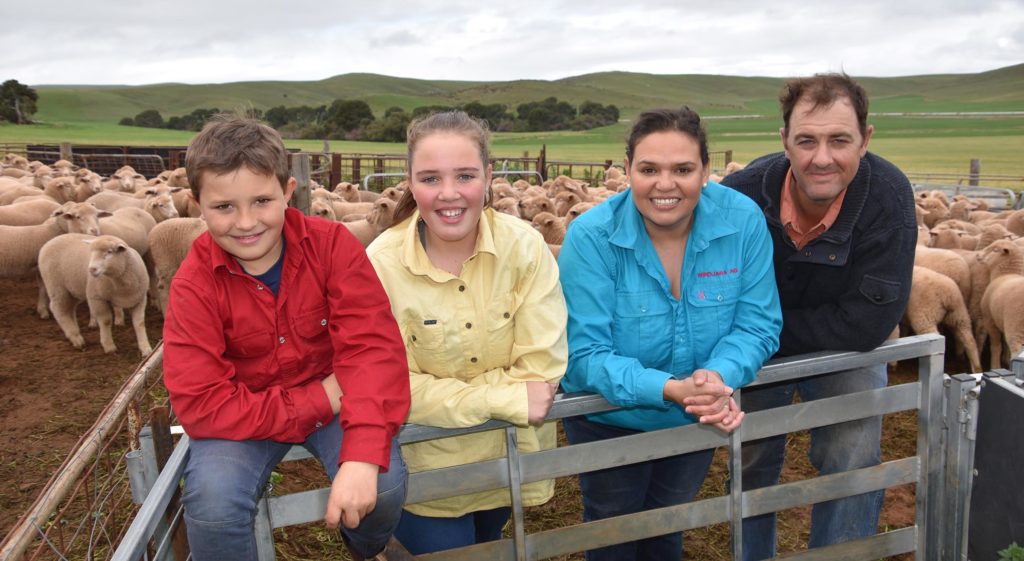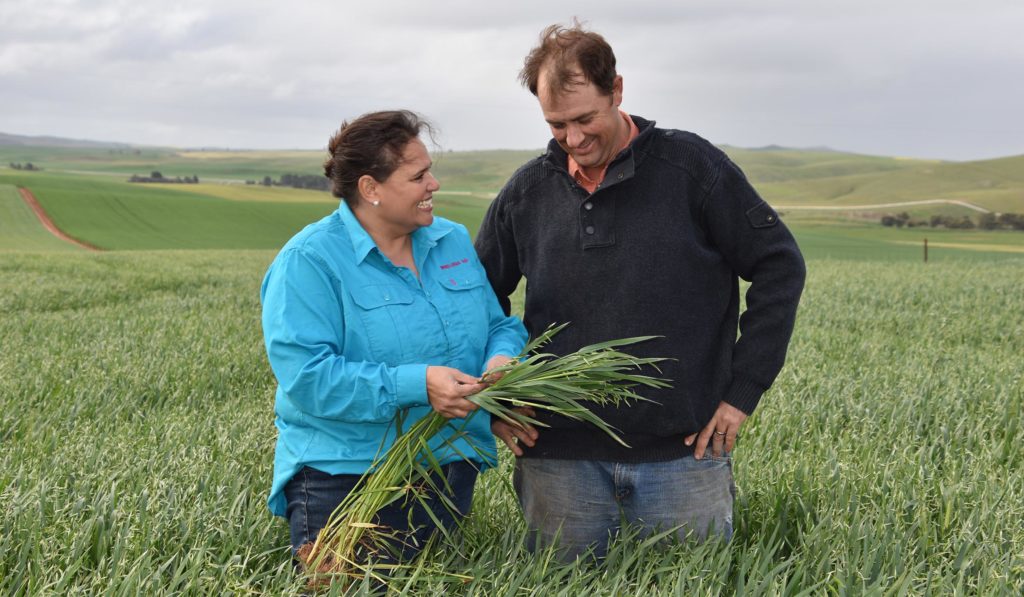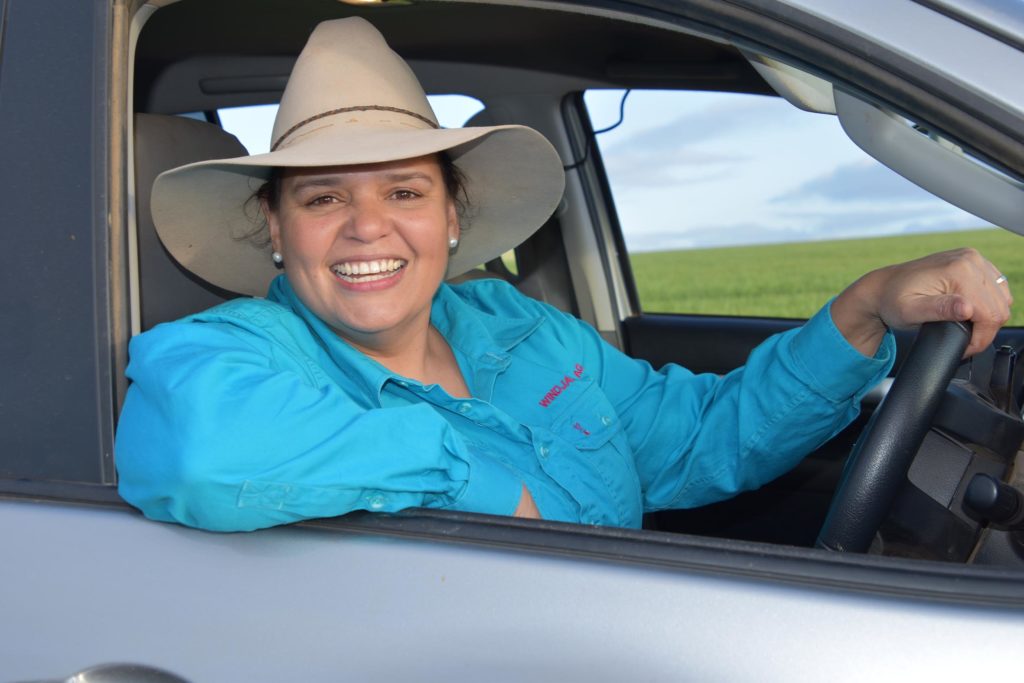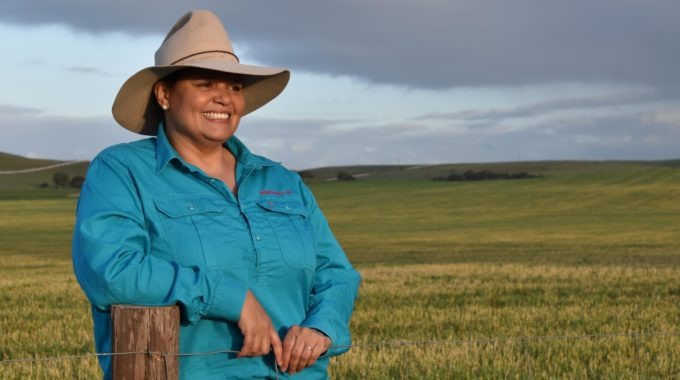Nurturing the land & the next generation
The best farmers always have an eye towards the future, whether that be on tomorrow’s rain forecast or on the young people who will one day carry on the important work of feeding Australia. The best farmers also know the importance of caring for the land, to ensure it can continue to produce the food that our country depends upon.
Natalie Sommerville, who lives with her husband and children in Ngadjuri country, 30 kilometres north of Clare in South Australia, has always had a passion for agriculture, and understands the importance of responsible farming practices. When Sommerville finished school, she knew she wanted to study sustainable agriculture, but at the time, there wasn’t a university that offered such a degree. So she created her own.
“What I ended up doing was combining a degree in natural resource management and agriculture to gain a what is now referred to as a sustainable ag degree,” she explains. “Back then, it wasn’t available, so I had to design my own course.
“I still use that knowledge today – it’s all about observing the land and catering for what’s best. For me, from the beginning, it’s always been so important to have an awareness of what we’re doing in terms of the impact we have on the environment around us.”

Somerville’s 5000-acre property grows cereals such as barley, wheat, canola and faba beans, and the family also has a large export hay business. Because they also run sheep, the Somervilles use lots of legume-based pastures to help with soil improvement.
“Then there’s also protecting our waterways and encouraging revegetation,” Somerville says. “This land has been very heavily cleared, so we’re catering for maintaining native grasses, rather than grazing it out for the sake of providing food for our sheep.”

As well as nurturing the land, Somerville is also nurturing the next generation. Having Torres Strait Islander heritage, Somerville understands the importance of connecting with your culture, and she has started mentoring local First Nations kids to help them find that link.
“There’s not a lot of opportunity in terms of connecting to culture in this area,” she says. “And we’re finding that a lot of the students around here are missing that connection, and the confidence that comes from being proud of your heritage.”
Sommerville’s role as a mentor can vary from having a yarn with young people and their families and supporting learning opportunities to helping students deal with racism issues.
“Sometimes mentoring might be helping students work out how to deal with challenging situations, where they feel like they need to stand up and say something, but they just don’t know what words to use,” she says. “I’m also hopefully inspiring them to join the agricultural industry. I’d ultimately love to use our farm as a training base, giving those not fortunate enough to have farming land an insight into what farming might be like as a career.”

It’s no secret that 2020 has been a tough year, and our farmers have certainly borne the brunt of it. From bushfires and severe drought to COVID-19, this past year has been one that many would rather forget. But despite the ongoing challenges, agriculture remains Somerville’s passion, and the proud farmer says she couldn’t imagine doing anything else.
“Every year brings a new challenge, but as a farmer you need to be flexible,” she says. “And in the past year, we’ve had to be ultra-flexible! But I genuinely love what I do.”
Somerville is also one of the faces of the Back on Track campaign – an initiative by the National Farmers’ Federation to highlight the important role that agriculture and the bush will continue to play in Australia’s COVID-19 recovery.
“I think it’s a really important campaign,” Somerville says. “Especially when there was a lot of hysteria about food shortages – it showed that society was struggling with understanding where their food comes from. It’s an opportunity to show that there’s no need for panic.
“I think it’s also good to showcase your average, everyday producers, because quite often they fly under the radar. And I think farmers can get a bad rap sometimes, but the majority of us are working hard to produce clean, green and sustainable food that not only looks after the land, but also keeps us all healthy.”
To find out more about Back on Track, head to farmers.org.au, and don’t forget National Agriculture Day on November 20 – a chance to celebrate our farmers and thank them for keeping Australia well-fed and food secure.









